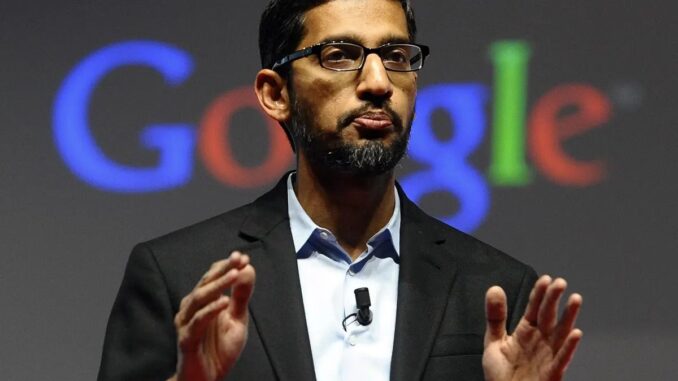Google protects users from copyright claims on generative AI in Cloud and Workspace. A unique two-pronged strategy covers data and outputs. By Kashif Saleem 1 hour ago Updated 1 hour ago



Google has taken a stance to protect users of its generative AI systems on Google Cloud and Workspace platforms from allegations of intellectual property infringement. The move aligns Google with other tech giants like Microsoft and Adobe, which have also made similar promises.
Generative AI, a technology capable of producing new content based on existing data, has been a significant focus of investment for Google. The tech giant has integrated generative AI into its products, including the Vertex AI development platform and the Duet AI system.
Read Also: Google Releases Bard AI, Its ChatGPT Counterpart
However, these advancements have sparked concerns among content creators who allege that their rights have been violated by Google and other companies with ownership over generative AI systems. Lawsuits have consequently been filed to address these grievances.
Google’s Generative AI Products Covered by Legal Protection
In its blog post on October 13, Google announced that customers using products integrating generative AI capabilities will receive legal protection. This announcement is a direct response to the growing concerns surrounding copyright issues associated with generative AI.
Best Crypto Exchanges and Apps September 2023 Must Read Top Meme Coins to Buy Now: What You Need to Know Must Read Top 10 Web3 Games To Explore In 2023; Here List Must Read
Read Also: Google Releases Bard AI’s Most Powerful Model Yet
Google has specifically identified several products eligible for this legal protection. These products include Duet AI in Workspace, which facilitates text and image generation in Google Docs, Gmail, Google Slides, and Google Meet; Duet AI in Google Cloud; Vertex AI Search; Vertex AI Conversation; Vertex AI Text Embedding API; Visual Captioning on Vertex AI; and Codey APIs. However, it is important to note that this list does not mention Google’s Bard search tool.
“If you are challenged on copyright grounds, we will assume responsibility for the potential legal risks involved.” Google said.
Google’s Unique Approach to Intellectual Property Indemnification
Google has implemented a unique strategy called the “two-pronged approach” to protect intellectual property indemnification. This initiative needs extending protection to both the training data and outputs generated from Google’s foundational models.
In practical terms, if anyone faces legal action due to the use of Google’s training data that contains copyrighted material, Google will shoulder the responsibility of addressing any legal challenges that arise.
Although providing indemnity for training data is not entirely new for Google, they recognized their customers’ desire for explicit confirmation that this protection encompasses situations where copyrighted material is present in the training data.
Read Also: Google Unveils New Ads Policy For NFT Games






